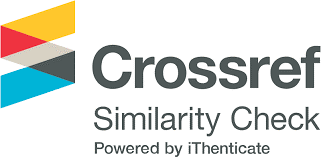Team-Based Learning in Electrical Engineering Classes
DOI:
https://doi.org/10.18618/REP.e202518Keywords:
electric machines, direct current machines, three-phase transformer, teamwork, synchronous machine, active learningAbstract
The Electrical Machines course requires dedication from students, which is essential for their professional qualification because several economic sectors such as industrial and commercial use electrical machines to drive loads. Aiming the training process of engineering students to encompass the development of technical skills, cognitive skills, and methodological skills, the National Curricular Guidelines (DCN) for Engineering courses in Brazil were revised and published to stimulate institutions to adopt active learning methods. This article presents the results of the Team-Based Learning application in the Electrical Machines Classes. In this research, the strategy was used to improve the learning of the students and develop collaborative work skills. From the analysis of the students’ grades obtained in the academic exams from 2010 to 2022 in the Electrical Machine Course of the Federal University of Ceará - Campus Sobral, the topics of Direct Current Machines, Three-phase Transformers, and Synchronous Machines were selected for applying the methodology in 2023. The result is the improvement and leveling of grades in the 2023 semesters.
Downloads
References
Universidade Federal do Ceará Campus de Sobral, “Programa Pedagógico do Curso de Engenharia Elétrica,” Sobral, 2006.
Guerrero, D.; Palma, M.; La Rosa, G. Developing Competences in Engineering Students. The Case of Project Management Course. Procedia - Social and Behavioral Sciences, v. 112, n. Iceepsy 2013, p. 832–841, 2014. DOI: https://doi.org/10.1016/j.sbspro.2014.01.1239
Pinheiro, G. D.; Boscarioli, C.. Metodologias Ativas e o Ensino de Cálculo Diferencial e Integral I em Cursos de Engenharia–Uma Revisão da Literatura. Revista de Ensino de Engenharia, v. 41, 2022. DOI: https://doi.org/10.37702/REE2236-0158.v41p140-153.2022
Revans, R. ABC of Action Learning. Farnham: Gower, 2011
Diesel, A.; Baldez, A. L. S.; Martins, S. N. Os princípios das metodologias ativas de ensino: uma abordagem teórica Active teaching methodologies principles: a theoretical approach. Revista Thema, v. 14, n. 268, p. 268–288, 2017. DOI: https://doi.org/10.15536/thema.14.2017.268-288.404
Michaelsenk LK, Sweet M, “Fundamental principles and practices of Team-Based Learning,” in Michaelsen LK, Parmelee D, MacMahon KK, Levine RE. Team-based learning for health professions education: a guide to using small groups for improving learning. Virginia: Stylus Publishing; 2008.
Tan, Nigel CK et al. A controlled study of team-based learning for undergraduate clinical neurology education. BMC medical education, v. 11, n. 1, p. 1-8, 2011. DOI: https://doi.org/10.1186/1472-6920-11-91
Nyindo, Mramba et al. Introduction of team-based learning (TBL) at Kilimanjaro Christian Medical University College: Experience with the ectoparasites module. Medical teacher, v. 36, n. 4, p. 308-313, 2014. DOI: https://doi.org/10.3109/0142159X.2013.876490
Guidorizzi, Hamilton L. Um curso de Cálculo. vol. 2. LTC, 2001.
Lozada, G. Controle estatístico de processos. Porto Alegre: SAGAH, 2017.
Montgomery, D. C.; RUNGER, G. C. Estatística Aplicada e Probabilidade para Engenheiros. 4. ed. Rio de Janeiro: LTC, 2009
Rocha, H. M. Controle Estatístico de Qualidade. Volume único. Plataforma Cederj, 2019. Disponível em: https://canal.cecierj.edu.br/012020/63a9404ee3148a7b0f32cd5a04340ffc.pdf, Acesso em: 25 de setembro de 2023.
Walpole, R. E.; et al. Probabilidade & Estatística para Engenharia e Ciências. 8 ed. São Paulo: Pearson Prentice Hall, 2009.
Ferro, Alana. et al. (2023). Active Learning Methodology Applied in Electric Machines Classes. In Proceedings of the 2023 Brazilian Power Electronics Conference (COBEP 2023).
Downloads
Published
How to Cite
Issue
Section
License
Copyright (c) 2025 Alana de O. Ferro, Márcilio B. Fontes, Denisia de V. Mota, Vanessa S. de C. Texeira, Adson B. Moreira

This work is licensed under a Creative Commons Attribution 4.0 International License.















